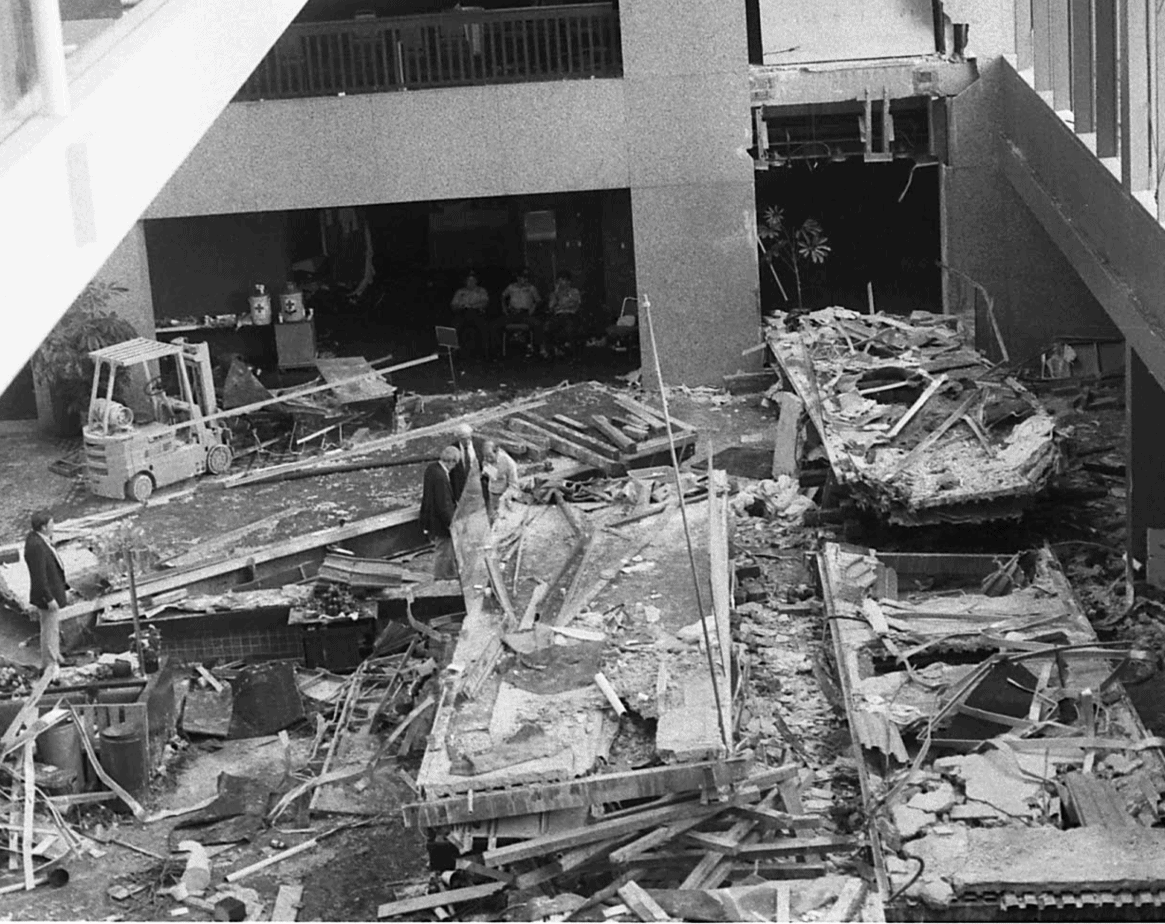Engineering Ethics: The Kansas City Hyatt Walkway Collapse
On July 17, 1981, the fourth floor skywalk at the Kansas City Hyatt collapsed during a dance contest being held in the hotel atrium. The accident, which killed 114 people and injured nearly 200 others, was the deadliest structural failure in the history of the United States.

Credit: 1 PDH
Price: $0.00
This webinar is currently not scheduled.

Ethics: The Kansas City Hyatt Walkway Collapse
On July 17, 1981, the fourth floor skywalk at the Kansas City Hyatt collapsed during a dance contest being held in the hotel atrium. The accident, which killed 114 people and injured nearly 200 others, was the deadliest structural failure in the history of the United States. But what is perhaps even more troubling to learn is that the tragedy could have been avoided. In fact, this failure was the result of a simple design error.
This webinar will examine the chain of events leading up to the tragedy and discuss the impact this event has had on the engineering profession. We’ll discover how the engineer’s inattention to constructability issues led the fabricator to change the original design. We’ll also learn about a major structural failure during construction of the hotel that should have raised a “red flag” in the design. And we’ll see how the direct cause of the accident was the engineer’s failure to review shop drawings that he stamped with his professional seal. As a result of these errors, the engineer of record and the project engineer responsible for designing the skywalk were found guilty of gross negligence, misconduct, and unprofessional conduct in the practice of engineering. Both engineers lost their P.E. licenses in the state of Missouri.
Additionally, we’ll learn how deficiencies in the Kansas City building code and inadequate staffing inhibited the Kansas City Codes Administration Division’s ability to prevent this tragedy. Finally, we’ll discuss lessons that can be learned from this incident to help ensure that a similar tragedy doesn’t happen again.
What you’ll learn in just one hour:
Benefits of Noon Pi webinars:
- You don’t have to leave your office. The entire training session is conducted from the convenience of your desk or meeting room.
- No fancy technology required. A computer or smart phone with a good Internet connection is all the equipment you need. Just log in and start learning.
- No wasted time. Our compact, one–hour sessions fit into the busiest of schedules. In no time, you’re back on the job using the wealth of relevant information you gained.
- Earn PDH credit. Webinars earn PDH credit for engineers in all states, unless noted otherwise in the literature for a specific webinar. For more details, check your state requirements.
- You have nothing to lose. Noon Pi webinars are offered to engineers free of charge!
More info:
For more webinar information, click on the following topics:



